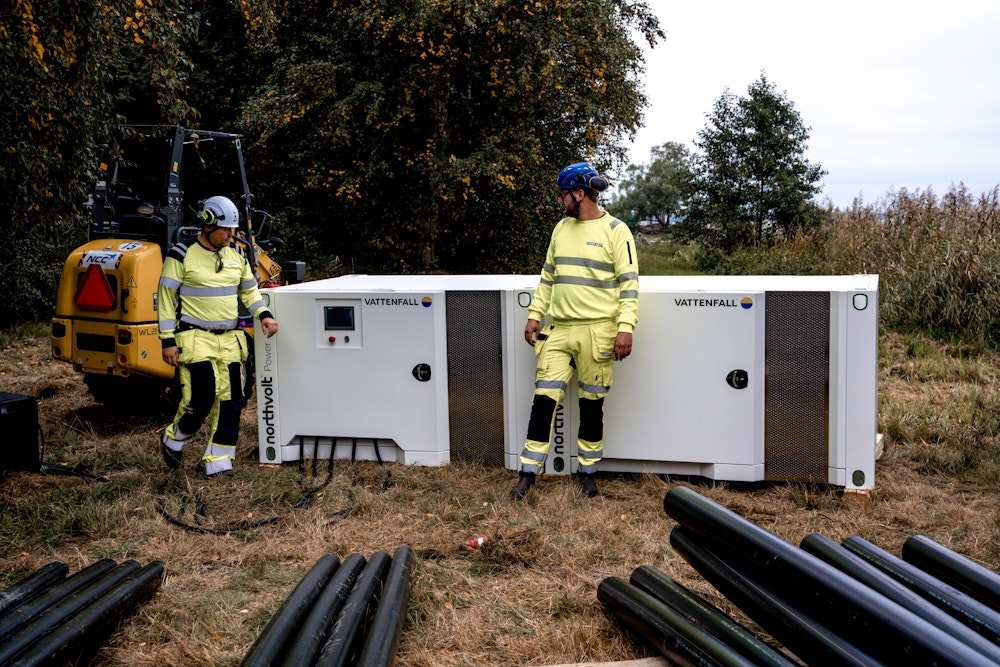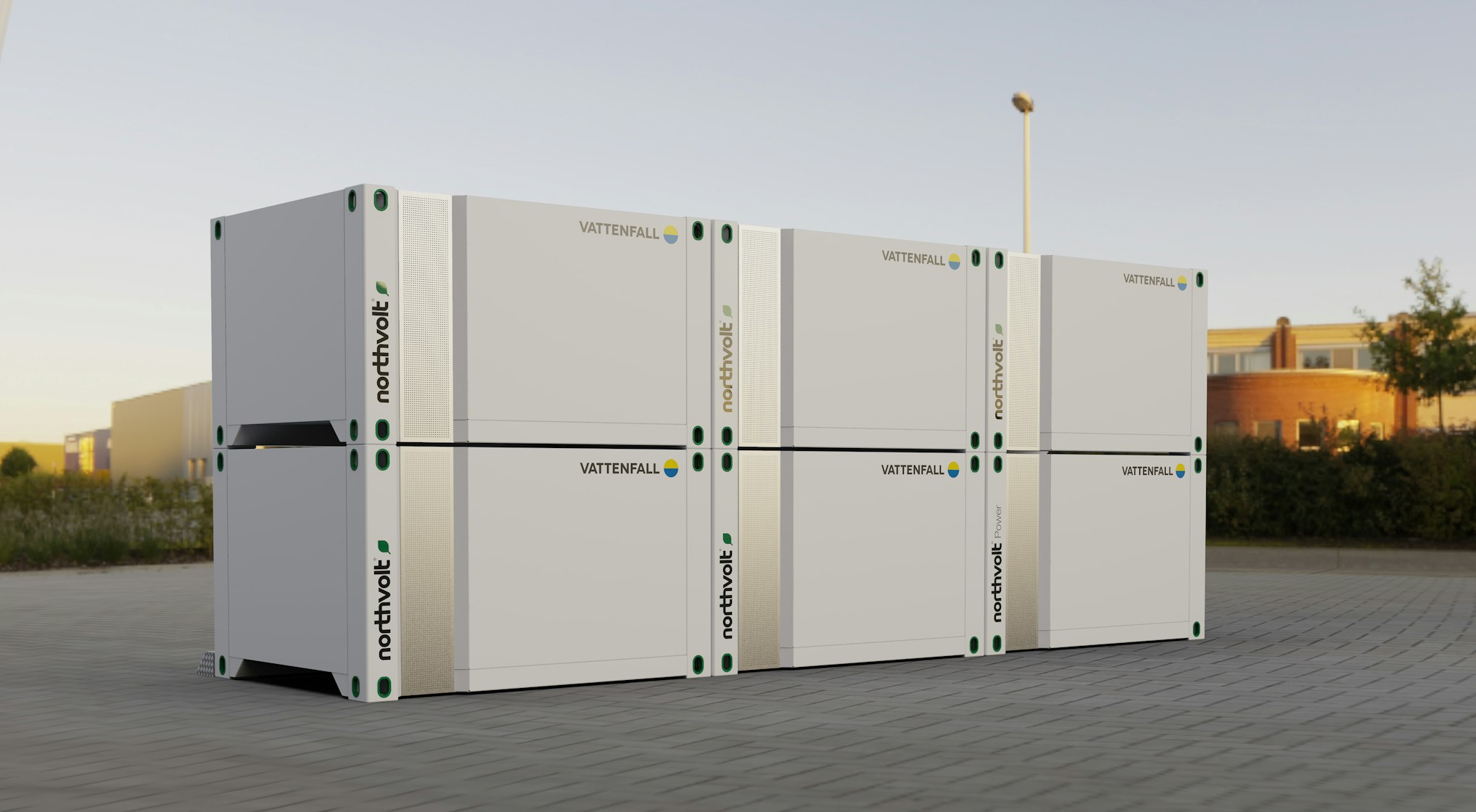Emission-free construction: Vattenfall’s deployment of Voltpack Mobile System
27 May, 2021
Since launch of Voltpack Mobile System in May 2020, design and development partner Vattenfall has proceeded in undertaking test and validation of the solution in order to bring it to market.

In the drive for decarbonization of global energy and industrial activities, attention is shifting beyond transportation and towards sectors which are all too often neglected as significant sources of emissions. Here, one sector in particular which is positioned for dramatic change in the coming years is that of construction.
Responsible for around one quarter of carbon dioxide emissions in Sweden for example, the construction industry is a prime candidate for sustainable solutions. Much of the sector’s carbon footprint is attributable to concrete and foundation materials, but a significant share (16% according to a report from IVA and the Swedish Construction Federation) stems from transport, equipment and work processes at the construction site.
Of the changes we can expect, one of the most visible developments – and one already underway – will emerge in the form of heavy vehicles and machinery which are transitioning to battery-electric variants; ones providing cleaner, quieter operations. Behind this shift, we also find first movers adopting sustainable alternatives to diesel generators to provide power to construction sites.
Delivering a flexible solution for on-site power was one of the key motivating factors for the development of Northvolt’s modular lithium-ion battery solution, Voltpack Mobile System. As multifunctional as a diesel generator and as capable in just as many operational settings, the system can scale from 281 to 1,405 kWh to provide power to cabled equipment, charge the batteries of larger machinery, provide lighting and heating, or power construction cabins.

A Voltpack Mobile System consists of several battery units and can be scaled up with up to five battery units. With a storage capacity of up to 1,405 kWh, the battery storage provides power supply for days, weeks or even longer periods.
…battery storage allows users to quickly reduce their carbon dioxide emissions from fossil fuels
Since launch of Voltpack Mobile System in May 2020, design and development partner Vattenfall has proceeded in undertaking test and validation of the solution in order to bring it to market.
In a recent test, a Voltpack Mobile System was deployed to replace diesel generators at a construction site in Örebro, Sweden, operated by the Swedish construction company NCC. The battery system delivered emission-free electricity supply to the construction site, located in an area without grid connection.
Torbjörn Johansson, head of Vattenfall Network Solutions Sweden, comments: “Mobile battery systems of various kinds have begun to be in demand by customers who operate in areas and environments where the electricity network is insufficient or not available at all. At the same time, battery storage allows users to quickly reduce their carbon dioxide emissions from fossil fuels. The Voltpack Mobile System provides access to fossil-free electricity and can be rented as part of our concept “Power-as-a-Service", which means that the ownership and management of the battery system lies with Vattenfall.”
With the intention of streamlining the adoption of battery systems as a substitute to diesel generators used for power supply, Vattenfall’s Power-as-a-Service solution involves the company delivering Mobile Voltpack System as a functional solution to customers. While construction sites have a century of experience in working with diesel generators, battery systems are a new asset to begin folding into day-to-day construction work.

Hans Säll, Business Development Manager at NCC, comments: “The construction industry, like many other industries, undertakes activities that affect the environment in different ways, even though major changes have taken place in just a few years. At NCC, for example, we have reduced our carbon dioxide emissions by 40% since 2015. We already use fossil-free electricity from Vattenfall, but in a number of places where there is no electricity network or there is not enough capacity in the electricity network, battery storage can be a good solution to reduce emissions. In addition, the work environment can be improved through the quiet and emission-free power solution.”
The decarbonization of the construction industry is an oftentimes unspoken, but important piece of the energy puzzle to solve. The solutions coming of age today have a key role to play in that future, whether it's electric machines or battery storage systems which can be quickly deployed to provide power to site. As these tools become yet more compelling compared to the diesel-powered alternatives, their adoption is sure to quicken. But behind this, new regulations coming into play – setting limits on construction site noise and emissions in urban areas, for instance – hint that the transition may yet happen at a faster pace than we might expect. Fortunately, solutions today are laying foundations that are enabling early actors to stay ahead of the curve.